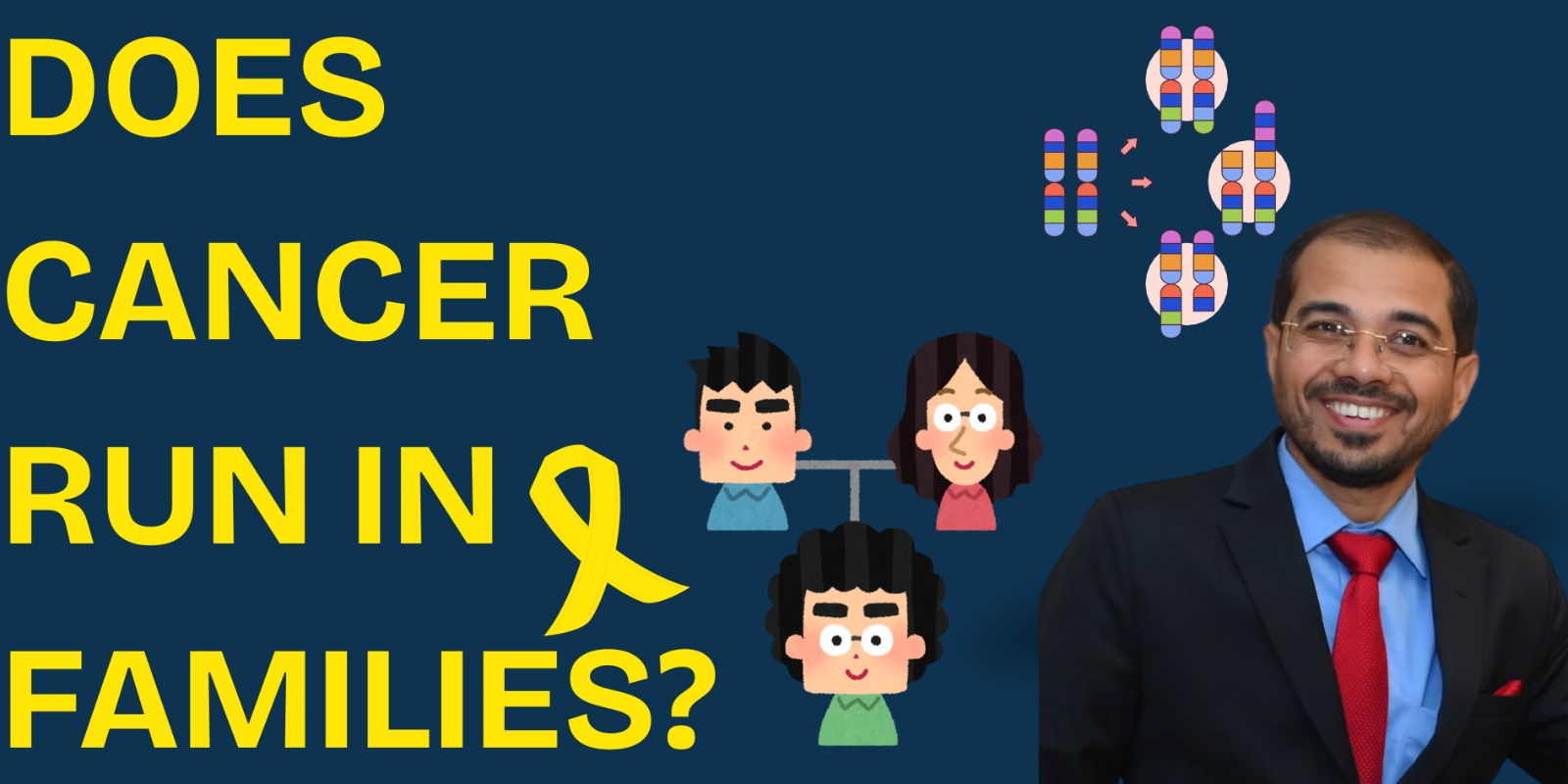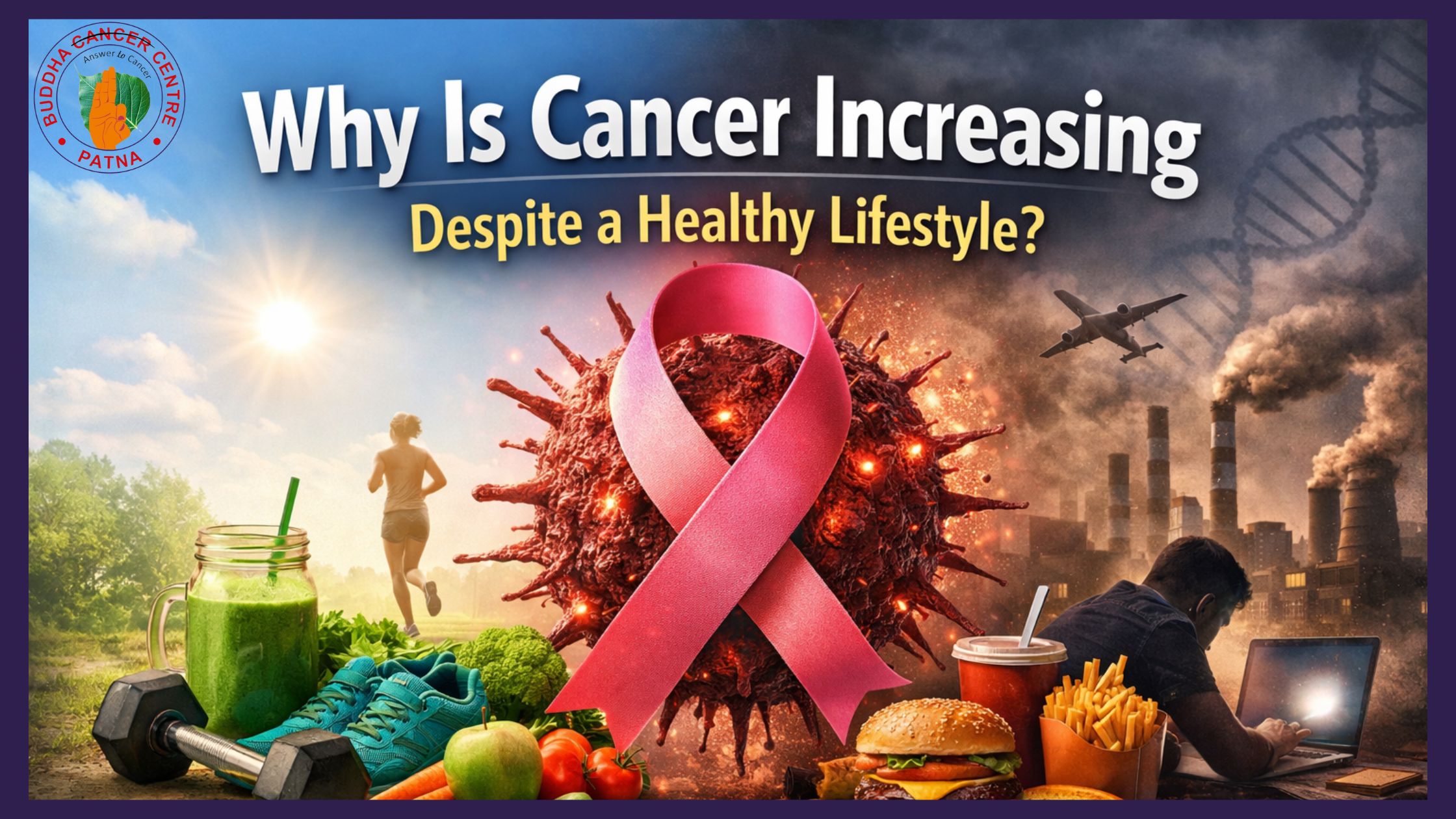


Good morning, everyone.
Today we will discuss very relevant questions which the cancer patients or their attendants often ask: “Will my cancer run in the family?”
Does cancer run in families? Especially when the patient is being cured and he or she has chances of getting married, or if the patient has cancer and he or she has a daughter who is going to be married, they often anxiously ask: “Will my cancer run in the family?”
No, it is not. There are only rare situations where cancer can run in families. Otherwise, cancer is not a genetic disease. It is not a hereditary disease.
On a large scale, there are some hereditary genetic mutations like BRCA1, BRCA2 and some others which come under the HRR gene panel that can sometimes lead to hereditary breast, ovarian, pancreatic, prostate, or some rare cancers.
Most of these are hereditary breast and ovarian cancers, but overall, if we take all breast or ovarian cancers, hardly 5–8% can run in families.
So, it is not necessary to get hereditary panel tests done in all children.
There is a proper methodology—if your doctor suspects, then once you have started your treatment, in a timeline it can be tested after proper counseling. If it comes positive, then there are some treatment modifications that might be used in your case. Also, your children may need to be tested after a certain age—maybe after 35 or 40 years, once they have completed their families, or in some cases earlier. Your siblings may also need testing.
So, on the large scale, it is not to be feared that cancer is a hereditary or familial disease.
Even if someone has a hereditary genetic mutation, and later on it is found that his or her children or siblings also have this mutation but are healthy right now, it does not mean that they will develop cancer 100%. If they maintain a healthy lifestyle, the risk decreases significantly.
Yes, there is a mutation, but that mutation on its own does not always lead to cancer. There are many epigenetic mechanisms influenced by our day-to-day lifestyle.
Lifestyle modifications—like physical exercise, healthy diet with lots of green vegetables and colorful fruits, reduced stress, and regular activity—can create positive epigenetic modifications that dramatically decrease the incidence of cancer even in individuals carrying genetic mutations.
Think of it like a CD or CD player: if we keep using it carelessly, scratches will appear sooner. But if we handle it carefully, clean it, and use it properly, scratches will appear much later.
Similarly, healthy lifestyle changes in children who carry hereditary mutations can delay or even prevent the occurrence of cancer, sometimes pushing it to very late ages like 65, 70, or 80 years, if at all it happens.
Each day, with every birthday, we accumulate epigenetic changes that may interact with hereditary mutations. But through healthy living, we can reduce harmful epigenetic changes and weaken the effect of hereditary mutations.
So again, I want to stress: cancer is not a hereditary disease in most cases. Only rarely—like in some breast and ovarian cancers—is it hereditary. And even in those cases, children with such mutations can reduce their risk significantly through a healthy lifestyle.
Thank you.
In most cases, cancer does not run in families. There are only rare situations where cancer can be hereditary. Cancer is not generally considered a genetic disease.
Some hereditary mutations like BRCA1, BRCA2 and certain others under the HRR gene panel can increase the risk of breast, ovarian, pancreatic, prostate, or some rare cancers.
No, it is not necessary for all children to undergo hereditary panel tests. Only if there is suspicion, doctors may recommend testing at the right age, usually after completing their families.

